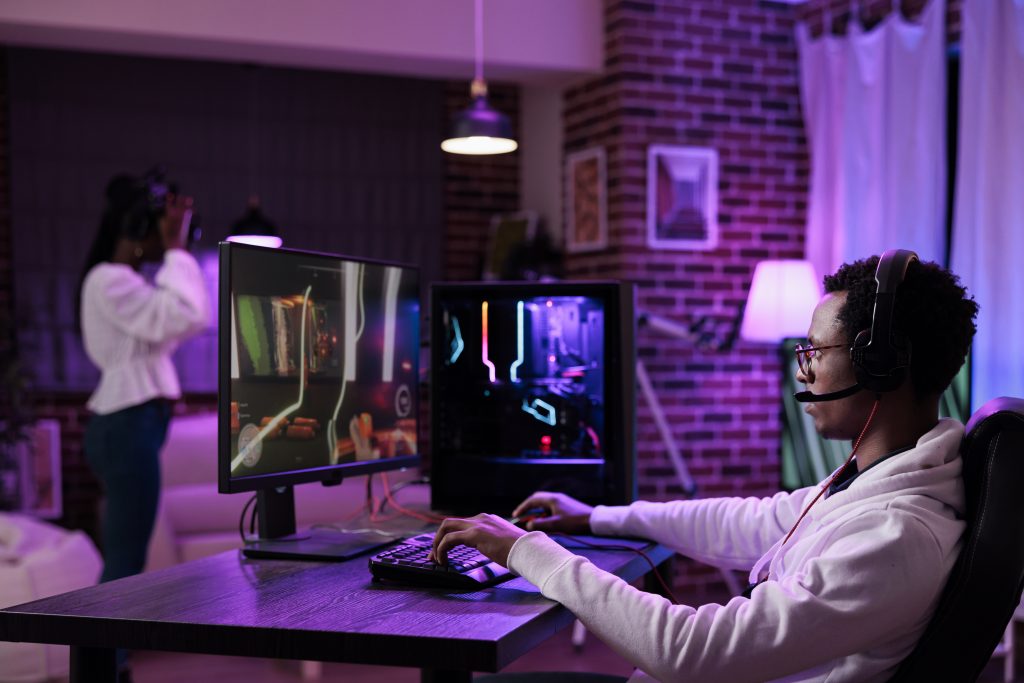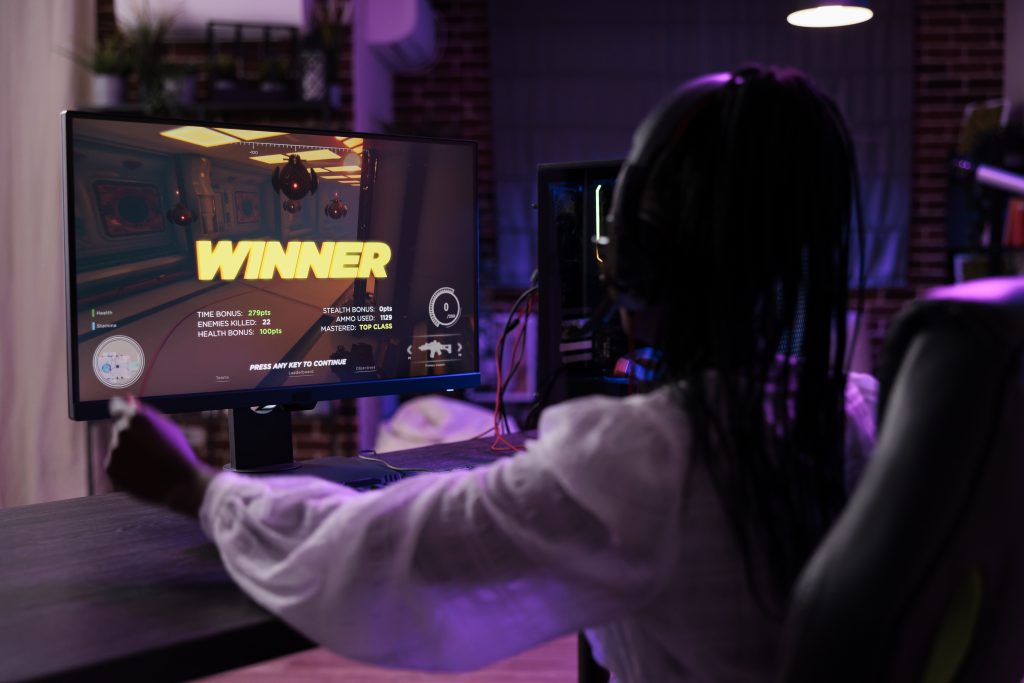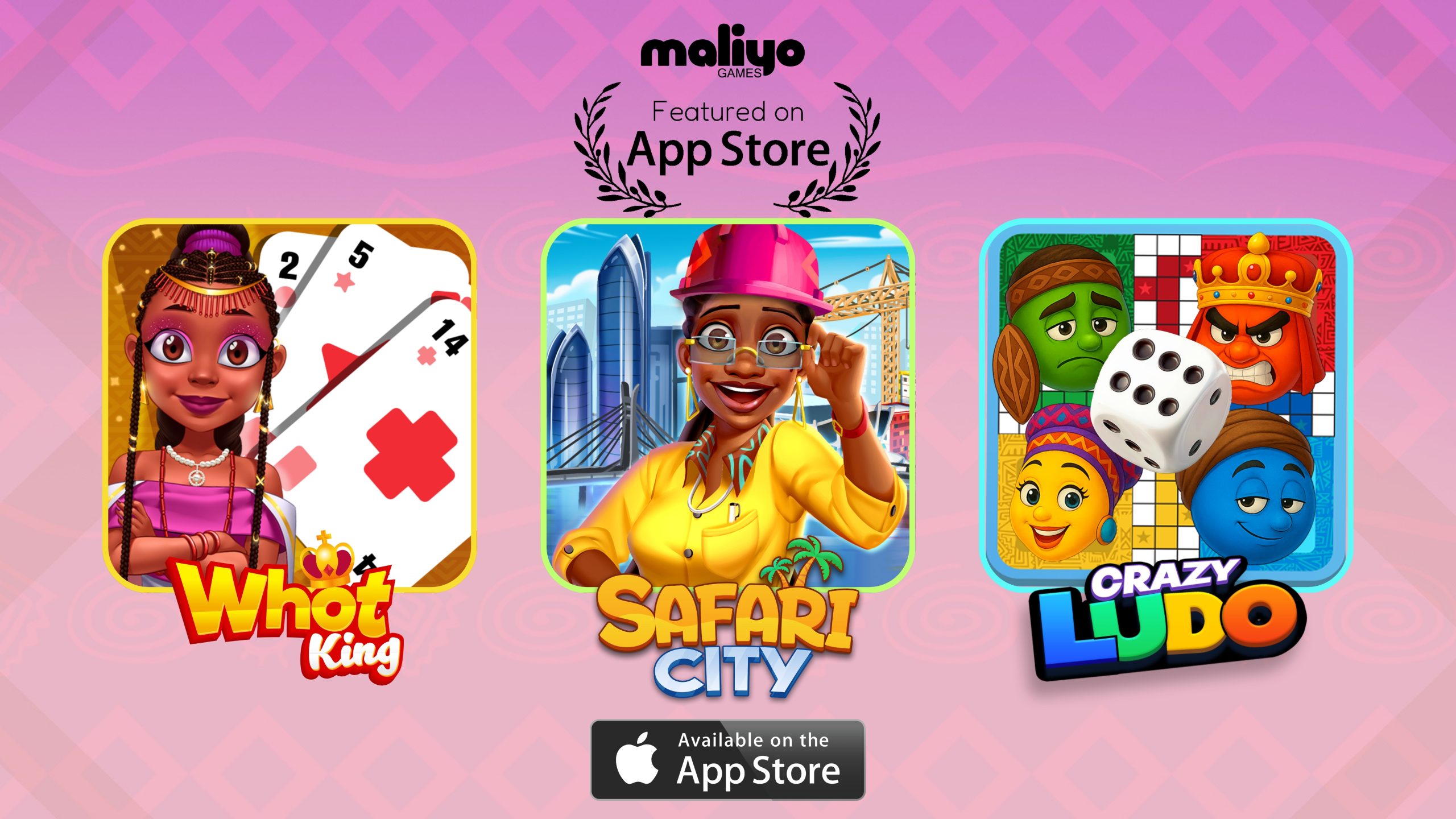
Sophie had always been a gamer at heart. As a child, she spent countless hours immersed in the worlds of her favourite video games. As she grew older, her passion for gaming only intensified, and eventually, she decided to pursue a career in the industry as a narrative designer.
For years, Sophie loved her job. She felt privileged to be part of the industry that had brought her so much joy and excitement throughout her life. But as time went on, Sophie began to feel increasingly burnt out. Long hours, tight deadlines, and a never-ending stream of new projects were taking their toll.
Sophie’s experience is not unique. Game developers are more prone to burnout than workers in other industries with a staggering employee turnover rate of 15.5%, the highest in the tech sector.
This high rate of burnout is partly due to the passion-driven nature of the industry. However, recognising when burnout is happening and understanding its causes can be the key to reigniting your passion and finding joy in your work again after burnout. Join us as we explore the challenges of burnout in the gaming industry and uncover practical strategies for overcoming them.
Recognise Your Triggers
The first step in managing burnout is to understand your triggers. For some people, burnout happens when they feel like they don’t have control over their work or when they feel like their work isn’t making a positive impact. Others may experience burnout when they are asked to do too much work and don’t have time to proofread or ensure the quality of their work.
For example, a programmer may want to test edge cases before sharing their work, but if they are under time pressure and have a lot on their plate, they may have to skip this step. This can cause stress and a feeling of losing control over the most important part of their workflow.
Burnout can also be a result of working on something that you don’t believe in or don’t feel passionate about for a long period of time. This can drain your energy and mental fortitude, making it difficult to function normally and leading to feelings of frustration as you try to get out of that creative block.
Know Your Limits
While it may be necessary to put in extra time on occasion, it’s important to minimize these instances and take time off immediately afterwards. Crunching should not take more than 2 or 3 days, and if it does, it’s important to excuse yourself and communicate with your team about your limits.
If you feel like you can’t complete a task right away, let your project manager know that you can’t. If you have to work overtime, then let them know that you’ll balance your time better to recoup. This might be taking a half day off or lightening your workload through the week.
It’s important to recognise that burnout is always more expensive than we think. When a team is in crunch mode, it can cause long-term damage that takes even longer to repair.
Learn The Cost of Burnout as a Negative Externality
In economics, externalities refer to the spillover effects of economic activity on parties that are not directly involved in the transaction. In the context of our industry, the cost of burnout and excessive work hours can be seen as a negative externality. The studio may prioritise meeting deadlines and delivering a high-quality product at the expense of the mental and physical health of its employees. This cost is not directly borne by the studio but is externalized to the individuals who experience burnout or leave the industry altogether.

Establishing a Culture of Trust
Establishing a culture of trust is crucial in preventing burnout on teams. When individuals feel they can trust their team and supervisors, they are more likely to speak up when they are feeling overwhelmed and need time off. This enables them to recharge and return with better ideas, leading to a more productive and effective team.
On the other hand, when people work in silos for extended periods and a supervisor comes in and dismisses their work, it can be a disempowering moment. This can lead to frustration, loss of motivation, and ultimately burnout. However, if the supervisor trusts their team and provides constructive feedback instead of outright dismissal, it can encourage team members to continue pushing forward and come up with innovative solutions.
Trusting your team to take breaks when they need them and allowing them to come up with solutions to problems in their own time can also be incredibly useful. People often come up with ideas for solving problems that are bothering them when they are doing what is supposed to be their relaxation activity. By establishing a culture of trust, team members are empowered to take care of themselves and each other, preventing burnout and ensuring the long-term success of both the individual and the team.

Sophie’s Journey Back to the Gaming Industry
After taking a break from the gaming industry to focus on her mental health, Sophie was hesitant to return. She worried that the same pressures and stresses that had caused her burnout in the first place would still be present.
But over time, Sophie realised that she couldn’t stay away from gaming forever. It was her passion, and she missed it. So, she started small, playing her favourite games in her free time and attending gaming events in her area.
Eventually, Sophie felt ready to re-enter the industry, but this time with a new perspective. She was determined to prioritise her mental health and well-being, set boundaries and take breaks when needed.
Sophie’s story is a reminder that burnout doesn’t have to be the end of your passion for gaming. With the right strategies, mindset, and support, you can overcome burnout and reignite your love for the industry. Whether you take a break, switch to a different role or project, seek professional help, or simply practice self-care, remember that you are not alone and that you have the power to make a positive change in your life. So, if you’re feeling burnt out, don’t give up on your dreams just yet. Take a deep breath, reflect on your values, and keep moving forward, one step at a time. Your passion for gaming is worth it.




